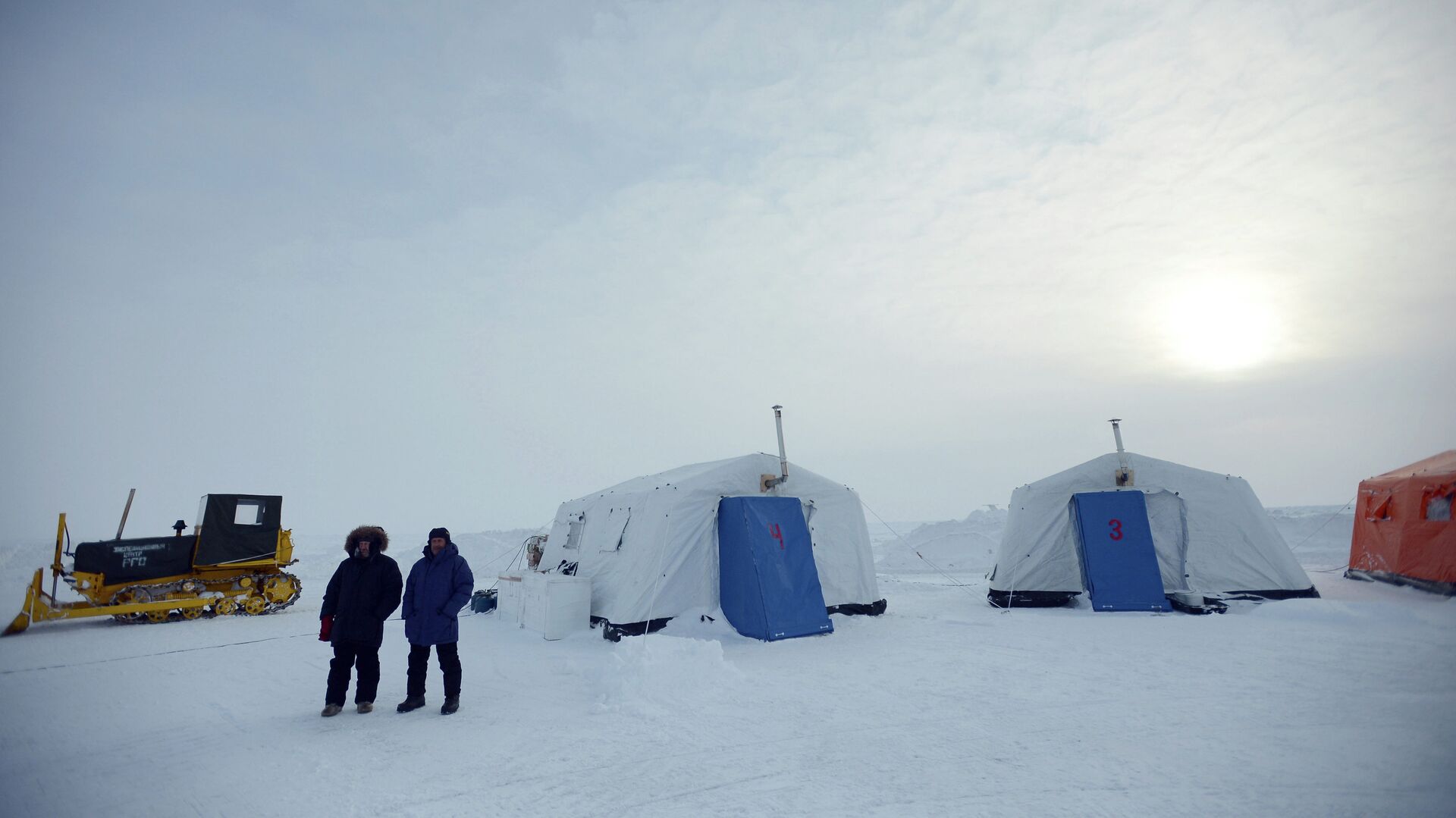https://sputnikglobe.com/20230331/russias-skif-satellites-to-provide-north-pole-with-broadband-in-2026-1108983304.html
Russia's Skif Satellites to Provide North Pole With Broadband in 2026
Russia's Skif Satellites to Provide North Pole With Broadband in 2026
Sputnik International
Russian Skif-D satellites, the first orbital spacecraft of the Sfera (Sphere) multi-satellite orbital constellation, will provide the North Pole with broadband connection from 2026, Russia's information and navigation systems operator Glonass said.
2023-03-31T07:50+0000
2023-03-31T07:50+0000
2023-03-31T07:50+0000
russia
skif-d
roscosmos
glonass
https://cdn1.img.sputnikglobe.com/img/102198/18/1021981877_0:318:3077:2048_1920x0_80_0_0_1c4cf2251f36f30a08dbe098a13f2564.jpg
To do so, satellites will be put into orbit at an altitude of 8,070 kilometers (5,014 miles) above the Earth. They will be used to provide broadband internet access, telephony and the internet of things to the region, the statement read. Currently, the North Pole has almost no internet access. A US system allows users only to speak on the phone and send short text messages, the statement said, adding that this works only with a special satellite phone. If several such devices are combined, it will be possible to connect to the expensive and very slow version of the internet, according to the statement. Specialists and experts plan to discuss possible ways to work with internet providers using the Sphere multi-satellite constellation at a congress in Moscow on April 13. In October 2022, the Skif-D satellite was successfully launched into orbit with the help of a Soyuz-2.1b rocket. Eight full-fledged satellites are planned to be put into orbit in the future, as part of the Sphere multi-satellite orbital constellation.
https://sputnikglobe.com/20220724/russian-space-agency-planning-to-deploy-glonass-station-in-venezuela-1097744246.html
Sputnik International
feedback@sputniknews.com
+74956456601
MIA „Rossiya Segodnya“
2023
Sputnik International
feedback@sputniknews.com
+74956456601
MIA „Rossiya Segodnya“
News
en_EN
Sputnik International
feedback@sputniknews.com
+74956456601
MIA „Rossiya Segodnya“
Sputnik International
feedback@sputniknews.com
+74956456601
MIA „Rossiya Segodnya“
russia, science, glonass, skif-d, satellites, roscosmos
russia, science, glonass, skif-d, satellites, roscosmos
Russia's Skif Satellites to Provide North Pole With Broadband in 2026
MOSCOW (Sputnik) - Russian Skif-D satellites, the first orbital spacecraft of the Sfera (Sphere) multi-satellite orbital constellation, will provide the North Pole with broadband connection from 2026, Russia's information and navigation systems operator Glonass said.
"Starting in 2026, Russian residents will be able to use the internet at the North Pole. As part of the Sphere project, [Russian] state [space] corporation Roscosmos will provide broadband Internet access in the Arctic zone," the operator told reporters in a statement.
To do so, satellites will be put into orbit at an altitude of 8,070 kilometers (5,014 miles) above the Earth. They will be used to provide broadband internet access, telephony and the internet of things to the region, the statement read.
Currently, the North Pole has almost no internet access. A US system allows users only to speak on the phone and send short text messages, the statement said, adding that this works only with a special satellite phone. If several such devices are combined, it will be possible to connect to the expensive and very slow version of the internet, according to the statement.
Specialists and experts plan to discuss possible ways
to work with internet providers using the Sphere multi-satellite constellation at a congress in Moscow on April 13.
In October 2022, the Skif-D satellite was successfully launched into orbit with the help of a Soyuz-2.1b rocket. Eight full-fledged satellites are planned to be put into orbit in the future, as part of the Sphere multi-satellite orbital constellation.


![A GLONASS [Global Navigation Satellite System] satellite mock-up on display at the exhibition Space -- Elections -- Telecommunications A GLONASS [Global Navigation Satellite System] satellite mock-up on display at the exhibition Space -- Elections -- Telecommunications - Sputnik International, 1920, 24.07.2022](https://cdn1.img.sputnikglobe.com/img/103734/81/1037348192_0:410:3073:1639_1920x0_80_0_0_4d4613b8bbf9e58671ab9a02dcb9fad7.jpg)
